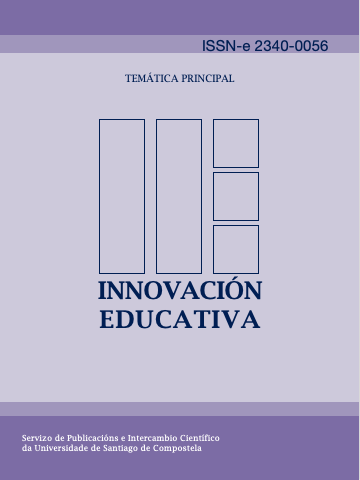Análisis de la metodología de aprendizaje colaborativo en la impartición del módulo de Formación y Orientación Laboral (FOL).
Contido principal do artigo
Resumo
El proceso de enseñanza-aprendizaje en el ámbito de la formación profesional tiene como fin último la adquisición por parte del alumnado de una serie de competencias que los convertirán en profesionales cualificados para desempeñar satisfactoriamente su tarea profesional. El módulo de Formación y Orientación Laboral, presente en todos los ciclos de la Formación Profesional Inicial, se centra en una serie de competencias transversales de carácter profesional así como en capacidades y conocimientos vinculados al desempeño laboral en cualquier contexto. Dada la especificidad de este módulo formativo y la ausencia de menciones explícitas en la normativa vigente sobre la metodología más adecuada para su impartición, los autores del presente artículo nos propusimos investigar la conveniencia de utilizar mayoritariamente la metodología colaborativa. Dado que son muchos los autores que señalan entre los beneficios de esta metodología el desarrollo de habilidades socioafectivas y comunicativas analizamos a través de una investigación cualitativa la posibilidad de utilizarla en la impartición del módulo de Formación y Orientación Laboral.






